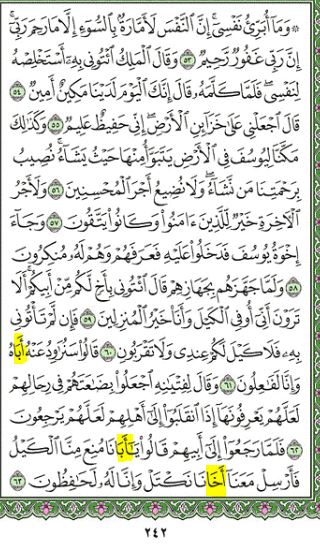
السلام عليكم و رحمة الله,
Okay, so we’ve covered the main indicator of نصب (nasb). Now, for the other indicators, starting with ا. Because there is only one situation where the ا is used to signal nasb, this is going to be a shorter post. Let’s do this:
Substitution of ا for فتحة
وَأمَا الألِفُ فَتَكُونُ عَلامَةً لِلنَصبِ فِي الأسْماءِ الخَمْسَةِ, نَحْوُ رَأيتُ أباكَ وَأخاكَ وَما أشْبَهَ ذَلِكَ
As for ا (alif), it is an indicator of nasb in the “five nouns”, as in رأيتُ أباكَ و أخاكَ (“I saw your father and brother”) and whatever is similar to that.
We already know what the “five nouns” are from when we did Going high with رفع, Part 2: و. We saw then that when they are in رفع, they will show it using the letter و. When their state changes to nasb, you will see the letter ا instead of و. In a future post إن شاء الله, you’ll see that in state of خَفض (also known as جَرّ), you’d expect ي to be there.
Consider these examples:
- احْتَرِمْ أباكَ – “Respect your father“
- انْصُرْ أخاكَ – “Support your brother“
- زُوْرِيْ حَماكِ – “Visit your in-law“
- نَظِّفْ فاكَ – “Clean your mouth“
- لا تَحْتَرِمْ ذا مالٍ لِمالِهِ – “Don’t respect a wealthy person on account of his wealth”
All the underlined words are in nasb because they are objects (recipients) of actions, and they show their nasb status using ا, instead of فتحة. Each one of them is mudhaf and the ك or مال after it is the mudhaf ilayh. If you’ve forgotten what that means, refresh your memory about the idhafah (“possessive phrase”) here. That wasn’t too hard was it?
From the Quran
I’ve highlighted where some of the “5 Nouns” show their nasb status using ا from this page of the Quran (12:53-63).

- ُأباه (“his father”) – It was originally أبُوْهُ but changed to nasb because it is the object of the action سَنُراوِدُ (“we will entice”). See how the pronoun ه can be added to the end of a noun to mean “his”
- أبانا (“our father”) – It was originally أبُوْنا but it has nasb now because he is being called out to using the word يا and is mudhaf (the first word in a “possessive” phrase). If we pop a نا at the end of a noun it gives the meaning of (“our”)
- أخانا (“our brother”) – It was originally أخُوْنا but is in nasb because it’s the object of the command أرسِلْ (“Send!”).
Question
- In how many situations will an ألِف substitute for fathah as the sign of nasb?
Until next time, السلام عليكم و رحمة الله و بركاته
Like this post? Simply enter your e-mail and click “Yes, include me!” for updates
Leave a Reply